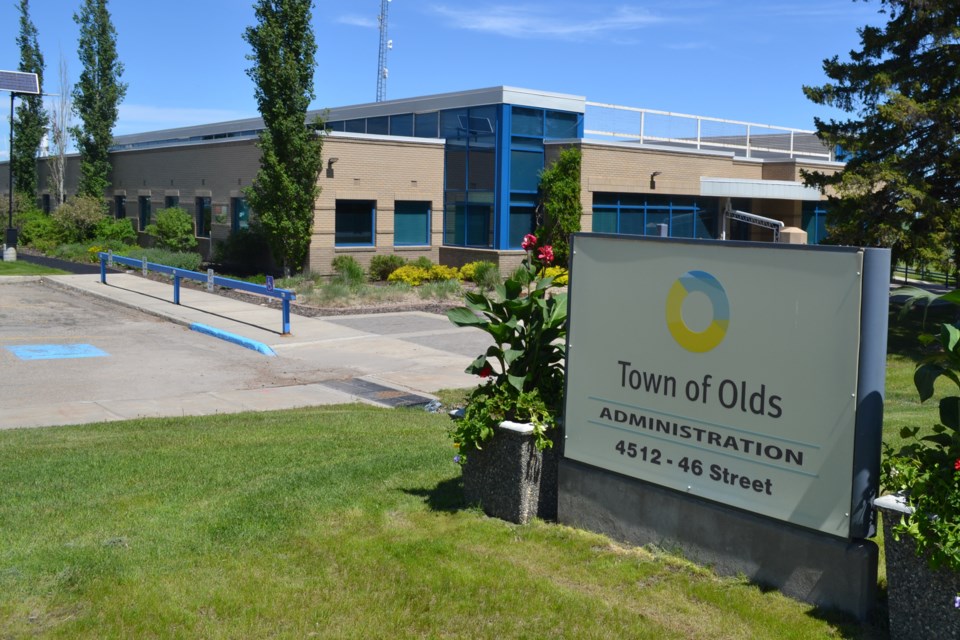OLDS — The provincial government’s recent changes to municipal elections laws could cost the Town of Olds $40,000, up from about $25,000 in the 2021 election, legislative clerk Marcie McKinnon says.
McKinnon made that prediction during a recent town council meeting where the election bylaw was passed.
She said part of that cost is due to inflation. Another part is the need to attract election workers.
McKinnon believes those workers will be in strong demand, because the town will be competing for them with other Alberta municipalities and the federal government if the federal election is held in late October as originally scheduled. As a result, she’s increased the pay for that job.
“That's what I hope, to pay them well so they'll stick with us,” she said.
A new law banning vote tabulating machines means the town will have to hire workers to count ballots – and probably a second shift of counters because McKinnon anticipates some will become tired and that could result in errors.
She predicts the cost of those hand counters will probably be much the same as the cost of tabulating machines obtained for previous elections.
However, McKinnon predicts the vote count will be longer, due to the requirement to only hand-count ballots, rather than run them through a tabulator.
“We'll be getting my texts at one or two in the morning instead of at 9:30 or 10:30,” McKinnon said.
Coun. James Cummings wondered if the town could use both tabulators and workers hand-counting the ballots so the results from each method could be compared and sent to the provincial government.
“I know it's completely irrelevant to us running an election, but might be more beneficial for us in the long run of future elections where we can support our argument that it's a bad decision with some actual data,” he said.
“We're prohibited from using them, is what the Act says,” McKinnon said.
Cummings asked if volunteers could do the hand-counting etc. instead of paid workers.
“If you can find me volunteers that will work for free, sure,” McKinnon said.
Chief administrative officer Brent Williams said if the town did use tabulators, he doubted the provincial government would be watching for that.
“It's just probably not worth the cost or the optics to do battle with the province,” he said.
“This wasn't a decision based on logic. This was based on whatever the Premier's party told her was the problem. So you can't really logic your way around politics, I don't think so.”
McKinnon said a requirement for a permanent electors’ registry will likely be a “big drain on staff resources because we're going to be the ones going back and forth with them once we start sharing information.”
“I'm not sure how the people will take it, because it's going to be different. They've never had to register, and we've never used lists for over 25 years in the town of Olds, so it's going to be a new process for everyone,” she said.
“I feel that it will increase costs, because we now need to promote it and advertise it and try to get as many registered voters registering with Elections Alberta, so that there's less time potentially registering them at the vote.”
Furthermore, the information the town is now required to compile is more detailed.
McKinnon said in addition the standard information such as address and phone number, provincial officials now require latitude and longitude as well as the EMS (ambulance) data confirming that location.
Coun. Heather Ryan expressed concern that it would probably require more workers to do the registry work than to count ballots.
“Even though you're going to have a lot of people needing to do counting, this registry seems to be very personnel-heavy,” she said.
“Do you have any idea of how long it's going to take to actually put this together? And are we looking at the community to try to provide that information, or are we going to have to go knocking door to door?”
McKinnon said Elections Alberta officials will be giving the town information they already have in their system from when citizens registered for the provincial election.
“We're supposed to encourage citizens to go online to the Elections Alberta (site) and register and make sure you're good to go,” she said, adding that town staff will have to “fill in all the blanks” if data is missing.
McKinnon said if people didn’t register to vote, they can fill out form 13, the electors’ register.
“My only comment would be that we’re already getting resistance from people who are somewhat skeptical to share personal information. I would imagine this would make it even somewhat more challenging,” Coun. Wanda Blatz said.



